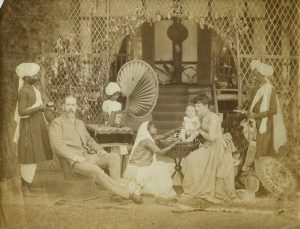 Organisers of the panel ‘Challenges or opportunities? The social fabric of colonial port cities, 1500-1850’ are looking for speakers to present at the 14th International Conference on Urban History in Rome (29th August-1st September 2018).
Organisers of the panel ‘Challenges or opportunities? The social fabric of colonial port cities, 1500-1850’ are looking for speakers to present at the 14th International Conference on Urban History in Rome (29th August-1st September 2018).
The panel fits into the rising interest in global history. The digitalization of colonial archives also stimulated new research on social relations in colonial cities during the past decade. Especially in colonial port cities the social fabric often differed from the known societal structures in the well-studied European towns. The maritime character of these urban settlements offered ample social opportunities for people from all sorts of social, religious, national and racial backgrounds.
Historians have described in detail how European migrants climbed the social ladder in colonial cities and the expanding global economy offered chances for people from all social layers. Research on gender relations in early modern port cities has shown that female participation in the economic life was for instance more extended compared to European towns. However, colonial port cities also faced some complexities. The different ethnic composition of these settlements did not result in problematic social relations in the beginning years of these maritime settlements, but racial segregation became a reality afterwards. A recent study on social inequality in Cape Town showed that social inequality was acceptable during the first years of the settlement, but this situation dramatically changed later on. In short, colonial port cities offered social opportunities, but they also had to deal with fundamental social challenges in the long run.
Central questions in this session are:
- How did social inequality develop within colonial port cities? Are there significant differences between European empires in what concerns social inequality within colonial cities?
- What were the top-down and bottom-up reactions on the ethnic diversity of these maritime gateways?
- How did different religious denominations react to the diversity within port cities? What was the role of religious institutions in colonial cities concerning inter-ethnic conviviality?
- In which way did the social fabric in colonial cities differ from its counterparts in Europe?
- How did legal pluralism in colonial settings influence social relations?
- In which way did colonial elites interact with other social layers? How can differences in social relations between cities belonging to the same European empire be explained?
The organizers of this session welcome proposals from different geographical backgrounds. Comparative studies or long-term perspectives are certainly encouraged! Abstracts should be posted via the Conference Website of the European Urban History Conference 2018 (https://eauh2018.ccmgs.it/users/index.php?pagename=home), or you can contact one of the organisers of the session.
Maarten Van Dijck (vandijck@eshcc.eur.nl)
Dries Lyna (d.lyna@let.ru.nl)
Isabel Dos Guimarães Sá (isabeldosguimaraessa@gmail.com)










Comments are closed.